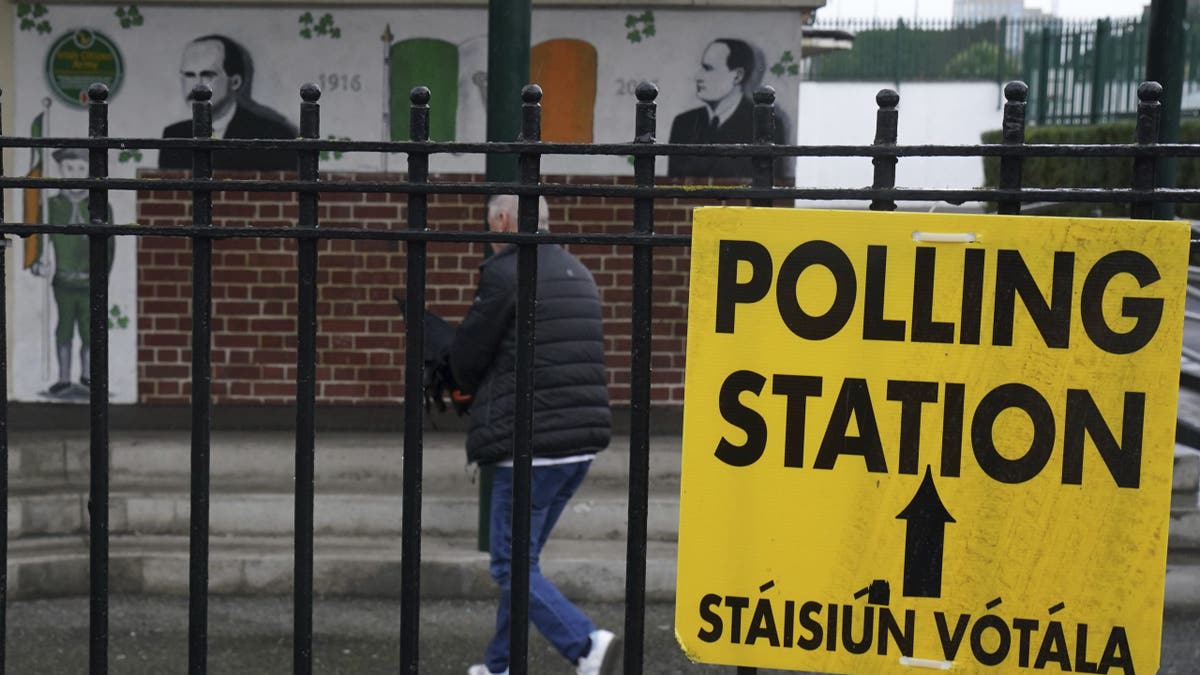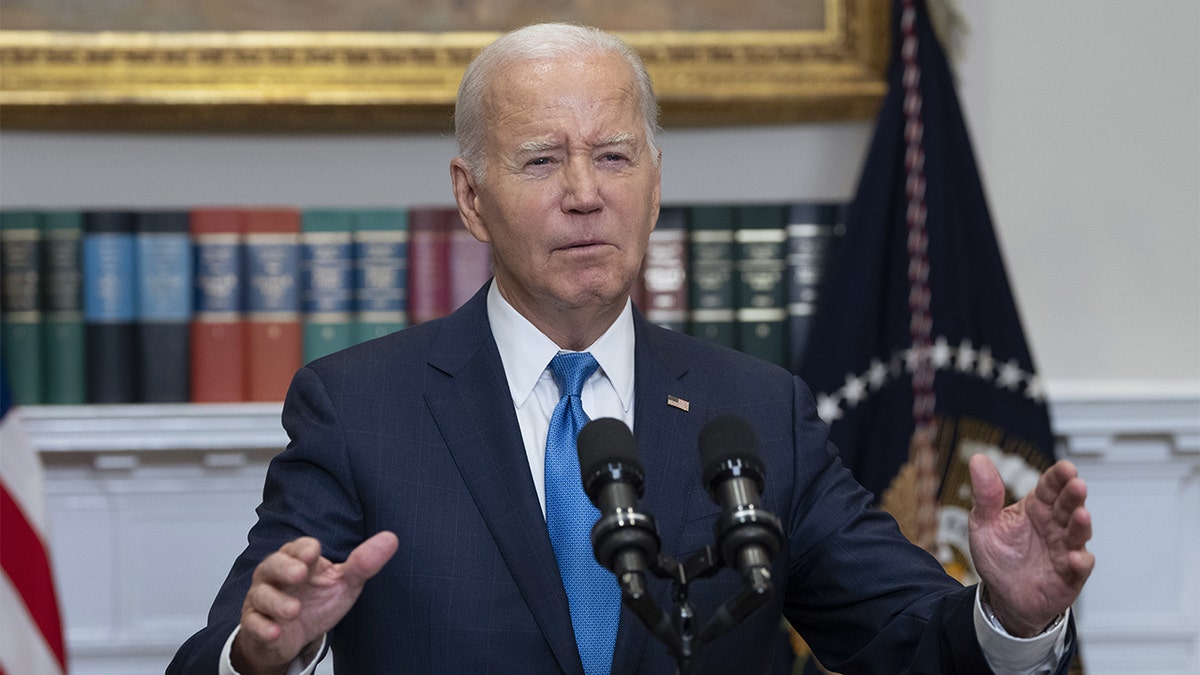The October 7, 2023 Hamas attack on Israel left an indelible scar on countless families. The Idan family of Kibbutz Nahal Oz tragically lost their daughter Maayan, while father Tzachi was kidnapped. Simultaneously, 16-year-old Rotem Matias of Kibbutz Holit hid beneath his deceased mother, relaying the devastating news to his sisters. In Kfar Aza, Roee Idan was murdered protecting his young daughter, Abigail, as his wife, Smadar, was also killed, leaving their children hiding with their mother's body, uncertain of their younger sister's fate, who was subsequently abducted.
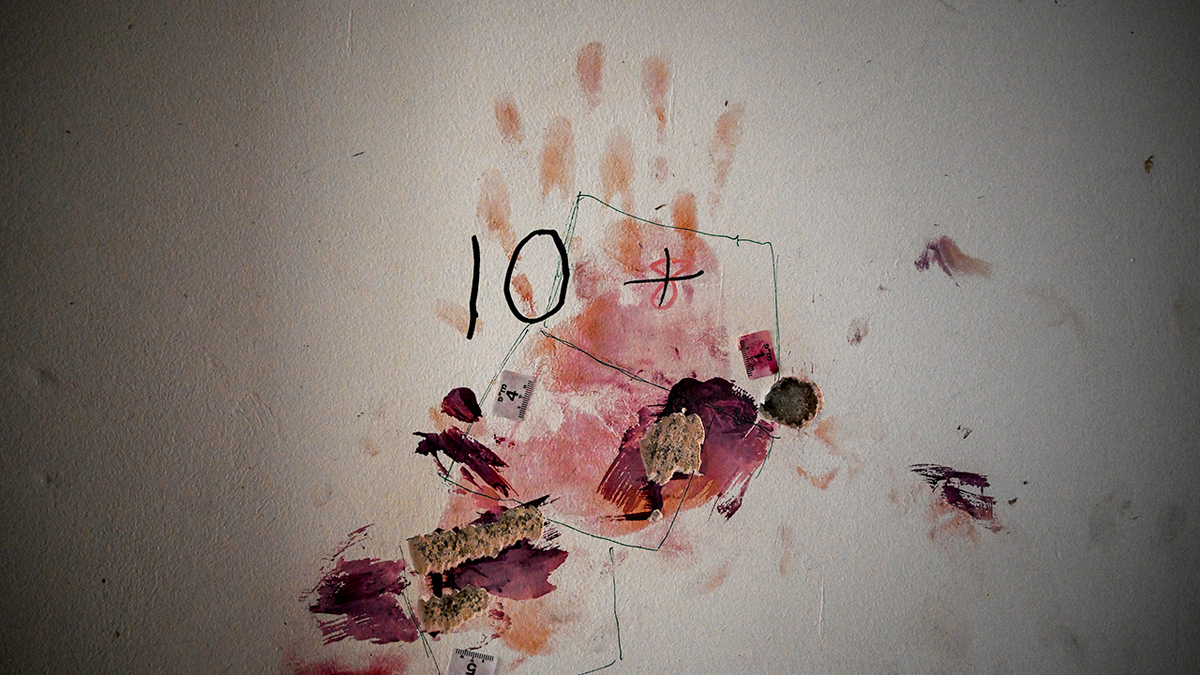
A blood-stained handprint on a wall in Nir Oz serves as a stark reminder of the violence. (Alexi J. Rosenfeld/Getty Images)
These harrowing accounts are just a fraction of the stories documented in a recently published report. This report introduces the term "kinocide" to define the deliberate destruction of families during the attack. Dr. Cochav Elkayam-Levy, a co-author of the report, describes it as "a crime without a name for victims without a voice." The report emphasizes how Hamas terrorists aimed to dismantle the core of society – the family unit – while broadcasting their acts on social media to amplify the terror globally. This “terror theater,” as Merav Israeli-Amarant, CEO of the Civil Commission, calls it, served to incite further violence and radicalize others.
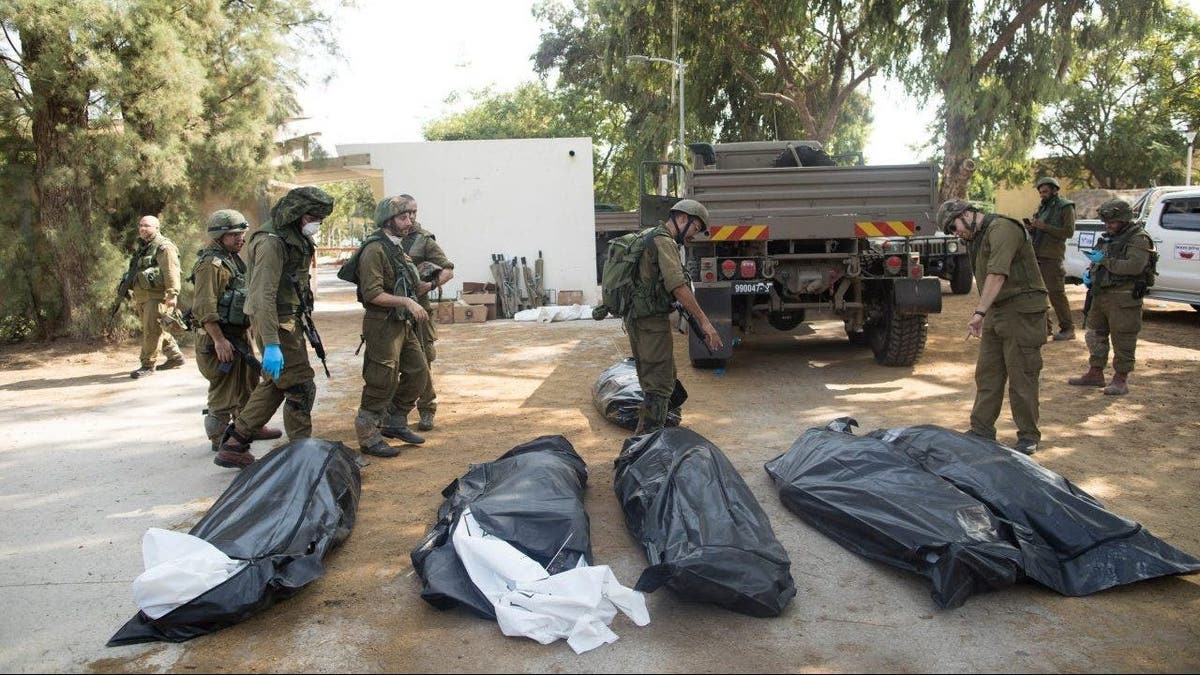
The grim task of recovering bodies of civilians killed in Kfar Aza. (Photo by Amir Levy/Getty Images)
This targeted destruction of families isn't unique to the Hamas attack. Similar patterns have emerged in conflicts worldwide, from Argentina and Iraq to Syria, Sierra Leone, and Myanmar. The report's authors have connected with survivors of similar atrocities, including Yazidis, highlighting the universal nature of this suffering. The report aims to establish "kinocide" as a recognized crime within international law.
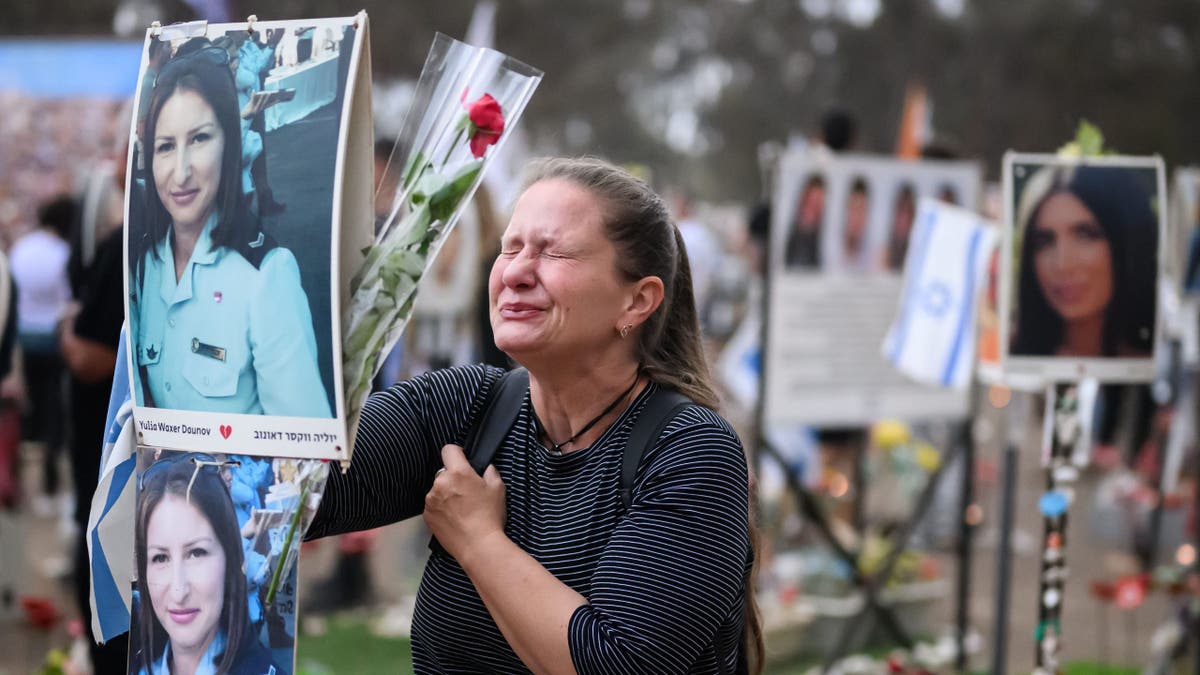
A mourner grieves at a memorial. (Leon Neal/Getty Images)
Professor Irwin Cotler, former Minister of Justice of Canada, stressed the danger of inaction in the face of such atrocities. The report, backed by legal experts and activists, underscores the critical need for global recognition of kinocide. However, concerns remain about the international community's response, particularly given the past challenges in acknowledging the full extent of the October 7th attacks. Dr. Elkayam-Levy expressed apprehension about the potential for international law to be used against Israel and the chilling reality of such abuses occurring in our time.
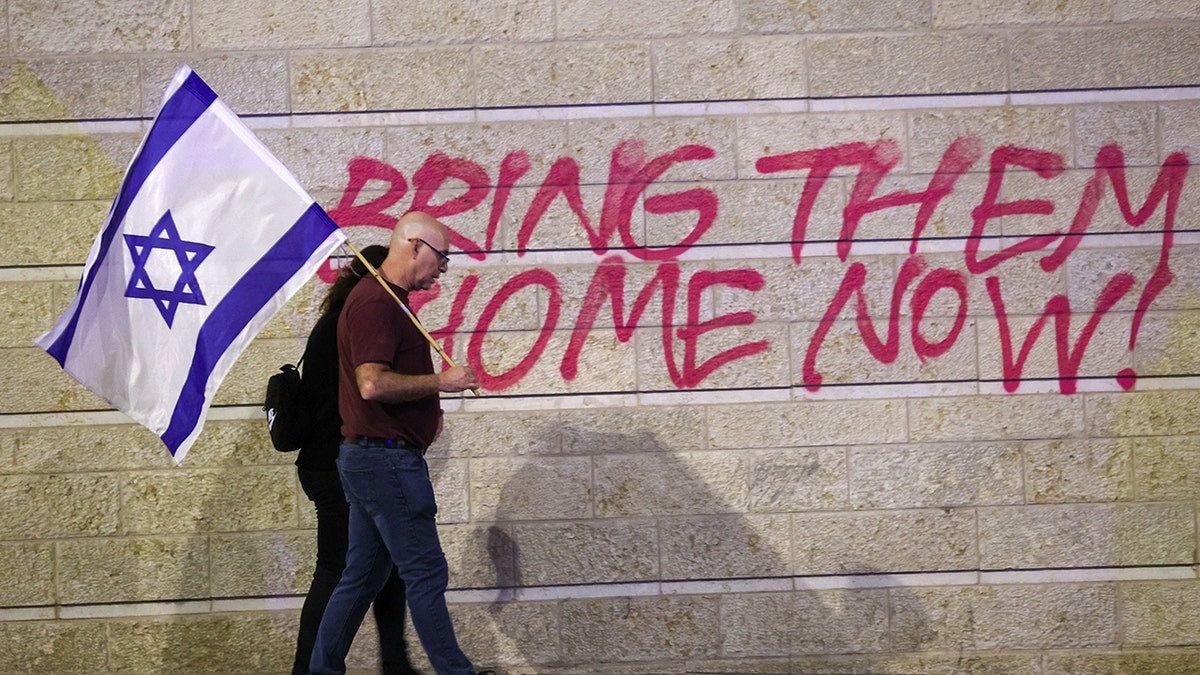
A plea for the return of hostages taken by Hamas. (GIL COHEN-MAGEN/AFP via Getty Images)

